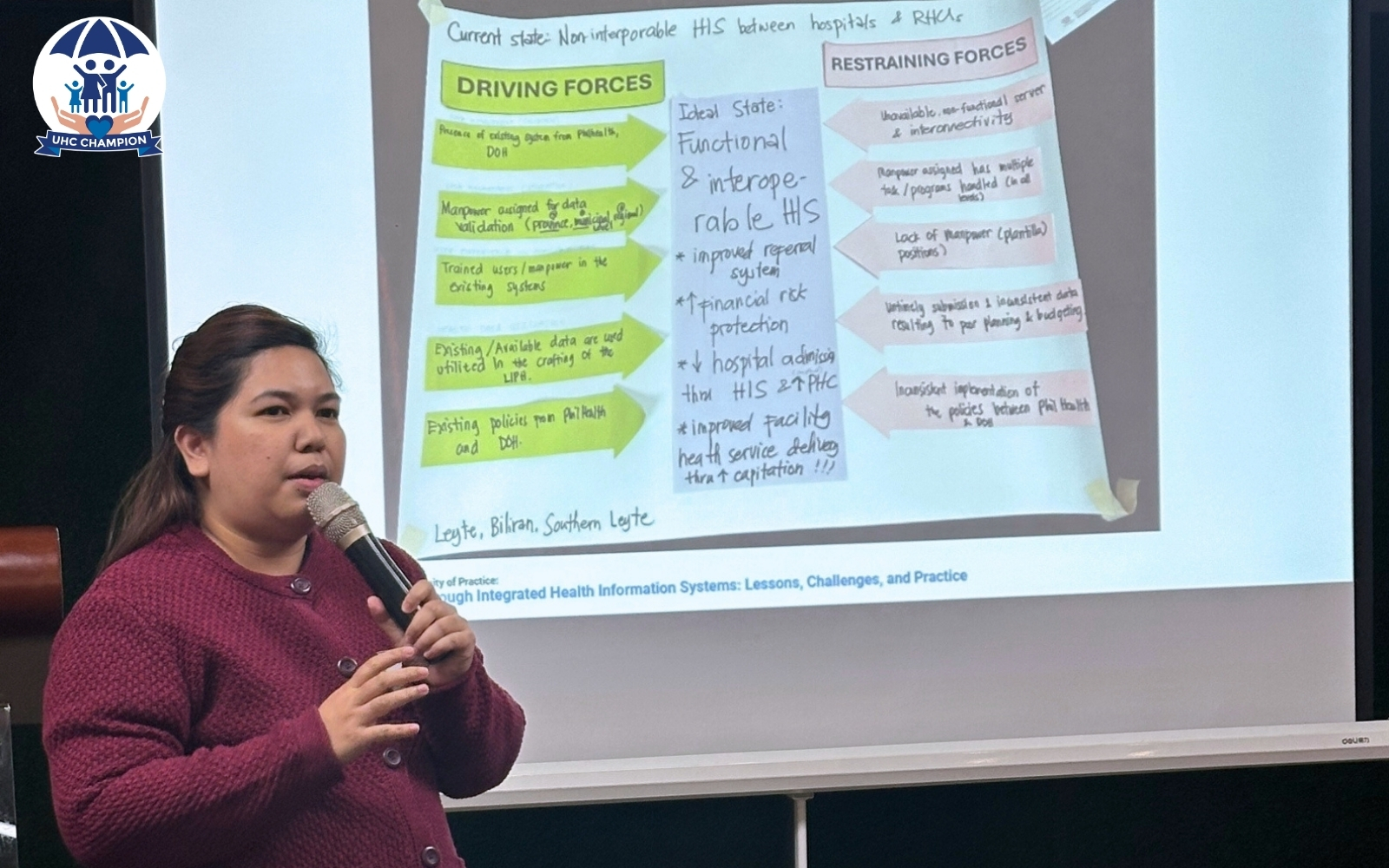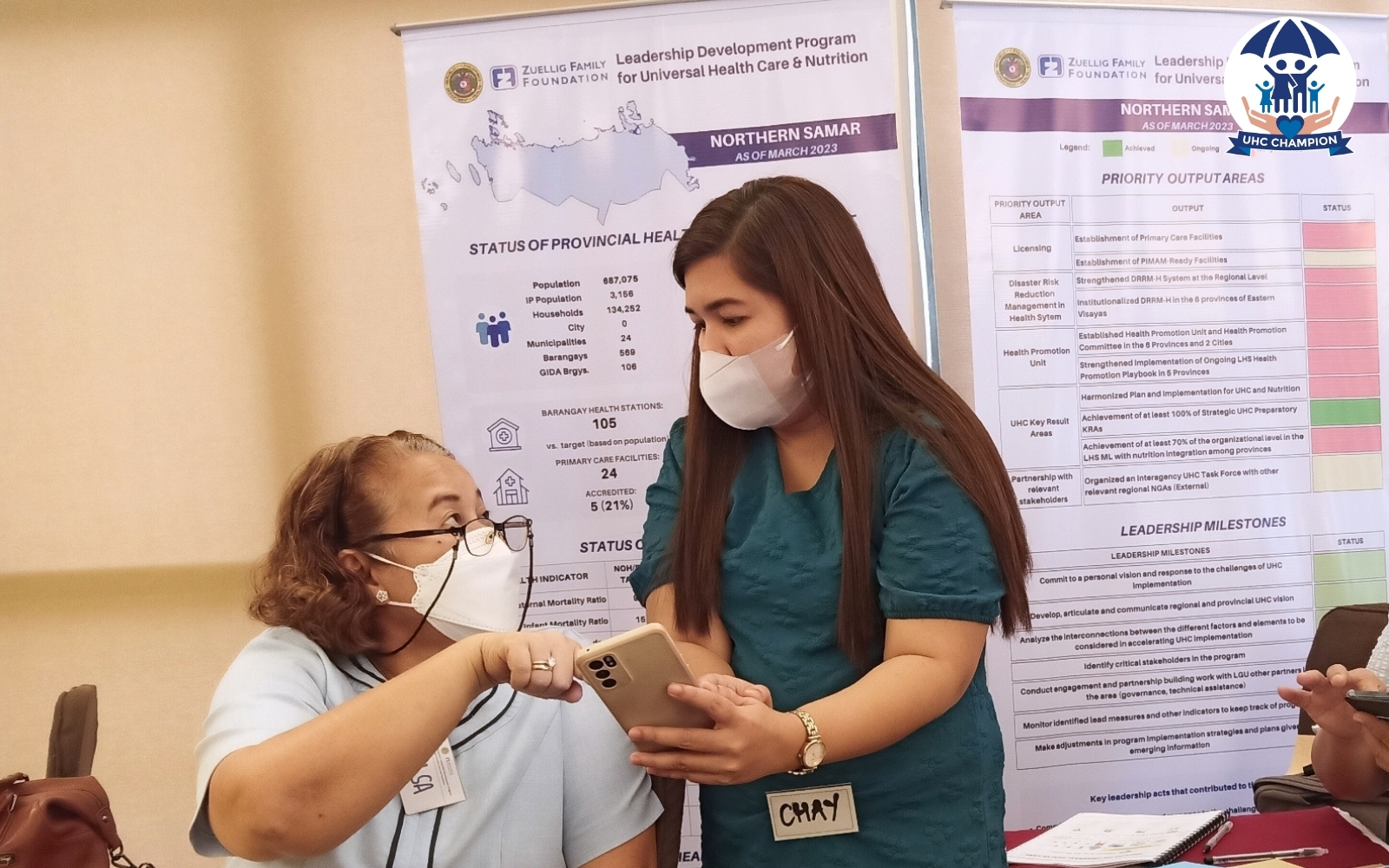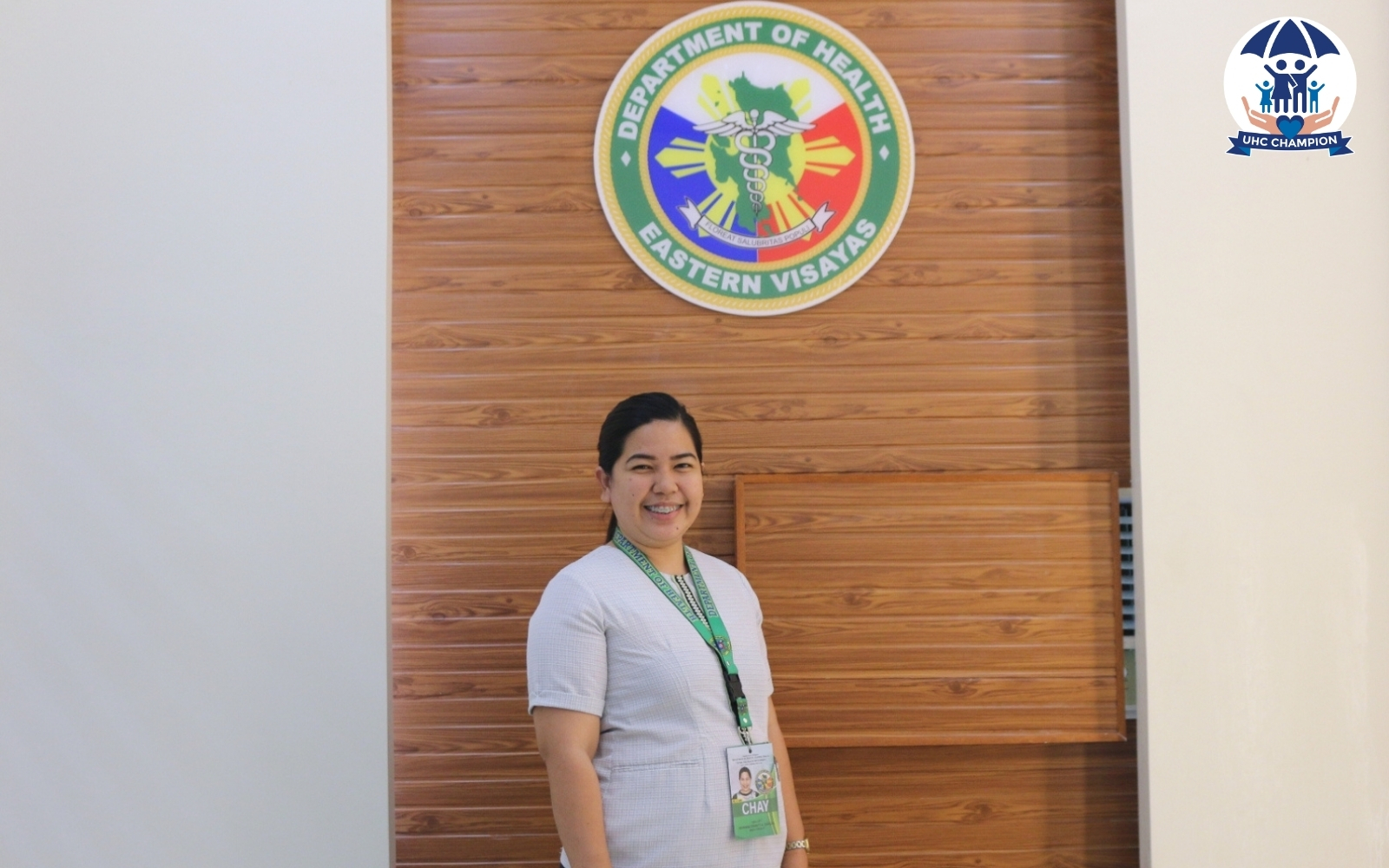Purpose Realized: Dr. Chay Cañezal’s Path in Public Healthcare
Stories

Motherhood brought Dr. Johnmae Charity “Chay” Cañezal to the Department of Health (DOH) from the clinical setting. When she made the change in November 2018, Dr. Cañezal was initially unsure about going into public health. Her perspective changed dramatically when she realized the more significant impact she could make in the public health sector. “Public health is very different from clinical practice. In the hospital, I was focused on individual patients. In public health, I work with communities, influencing policies and systems that affect thousands of lives,” she explains.
Personal circumstances also drove her transition. Pregnant and facing the challenges of long hospital shifts, Dr. Cañezal chose a position in the DOH regional office to balance her professional and family life. This decision opened her eyes to the critical importance of health systems development and multi-stakeholder collaboration, skills she would soon hone to champion the Universal Health Care (UHC) Law in the Philippines.
Taking On Regional Health Challenges
Like many regions in the country, Eastern Visayas faces high rates of maternal and child mortality and suffers from insufficient healthcare infrastructures and trained healthcare workers, among other challenges. Healthcare delivery has become a significant challenge due to the region’s geographical barriers and natural disasters. Comprising three main islands of Samar, Leyte, and Biliran, Eastern Visayas is used to the onslaught of typhoons.
Before the implementation of UHC, the region’s health indicators were alarming. Dr. Cañezal recalls, “There was a lack of policy and guidelines, and the health system was fragmented. Public health policies were not effectively implemented at the local level, which hindered our ability to provide consistent and quality care.”

Dr. Cañezal soon realized that her post in the DOH as the Regional UHC Coordinator had a simple task—having each citizen feel the effects of UHC—but the road to realizing it is not easy at all. There are many factors to consider: from rallying awareness from their Local Chief Executives (LCEs) to going out of their comfort zone and doing presentations for students about to enter the healthcare sector, whether private or public. The challenges were multifaceted and riddled with bureaucratic hurdles, resource constraints, and resistance to change.
Bringing All the Elements Together
One of the turning points in Dr. Cañezal’s work came with the engagement of the different stakeholders and the partnership between the DOH and the Zuellig Family Foundation (ZFF). This collaboration aimed to strengthen health leadership and governance, improve service delivery, and ensure sustainable health financing. Dr. Cañezal was at the forefront of this partnership, leveraging ZFF’s programs to address the region’s unique health challenges.
ZFF’s Bayang Malusog initiative, which focused on responsive leadership, improved health service delivery, and a competent health workforce, helped enhance the region’s capacity to provide technical assistance to provinces to address challenges in health governance, primary care, and health systems integration. “The Bayang Malusog program was a game-changer. It brought about innovations in service delivery and workforce competence, which were critical for our region,” Dr. Cañezal states.
Sustaining Success and Motivation
Despite these wins, fully implementing UHC is still an uphill battle. Engaging LCEs and ensuring policy continuity amid political changes remain significant hurdles.
What keeps her motivated in the face of these challenges? “The common good. Seeing the impact of our work in the community, especially the most vulnerable, keeps me going. It’s about making a difference not just for one person, but for entire communities,” she shares. Dr. Cañezal also emphasizes the role of community participation in the success of the UHC program. Personal anecdotes, such as witnessing the relief of families who no longer face financial ruin due to hospital bills, fuel her passion and resilience. She encourages everyone to play their part, no matter how small, in ensuring the success of the UHC.

Looking ahead, Dr. Cañezal is optimistic about the future of UHC in Eastern Visayas. She envisions a health system where policies are not just written on paper, but felt at the community level. Upcoming initiatives include strengthening disaster resilience in health services, enhancing healthcare workers’ skills, and expanding health programs to reach more remote areas. “Our goal is to make health programs sustainable and deeply integrated into the community fabric,” she says.
Her legacy, she hopes, will be one of tangible change and lasting impact. “By next year, I hope the tools and systems the region helped put in place will make a noticeable difference. It’s not just about lessening the burden on healthcare workers but ensuring that every community member feels the benefits of UHC,” Dr. Cañezal says.
The region, through Dr. Chay Cañezal and the Easter Visayas UHC regional team’s dedication and collaborative efforts with the Zuellig Family Foundation, is witnessing a health systems transformation that promises better health outcomes for all. Their hard work and determination will hopefully inspire others to take on the mantle and work with them to bring about lasting change.